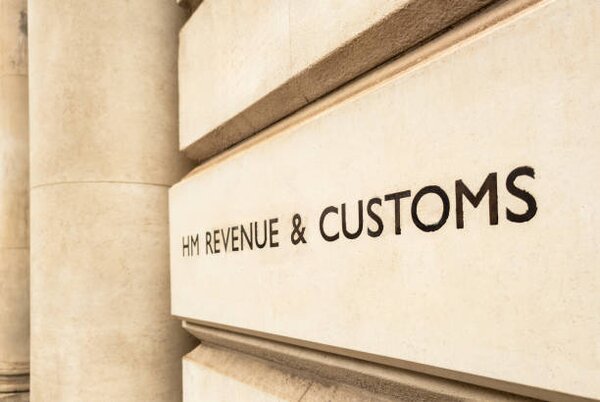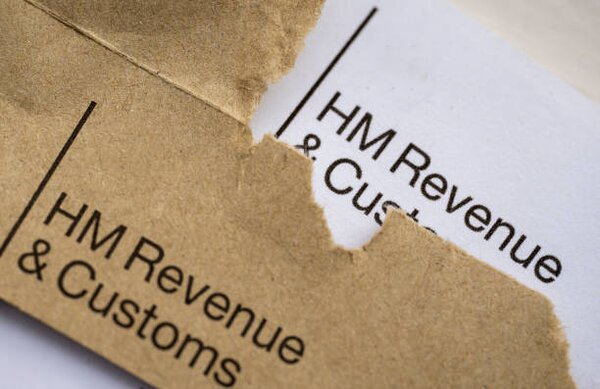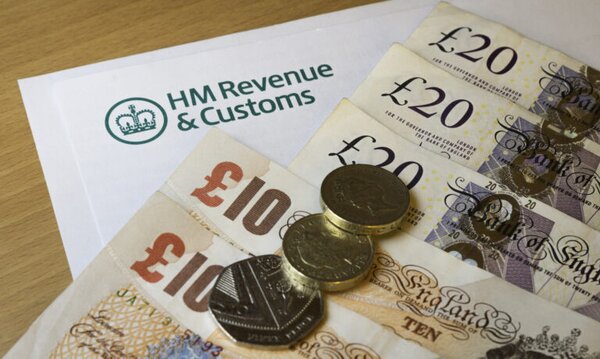Let’s Break This Down Together...
Wondering if your eBay sales might land you with a tax bill? You’re not alone, it’s a common question for anyone selling online.
This article walks you through the difference between casual selling and trading, explains the £1,000 trading allowance, and covers VAT and record-keeping basics. We’ll also highlight the “badges of trade” HMRC looks for so you know exactly where you stand.
By the end, you’ll know whether you need to worry about tax at all and how to stay on the right side of HMRC if you do. Ready to make eBay tax simple? Let’s dive in.
When Do I Pay Tax on eBay Sales?
The good news is that most casual eBay selling doesn’t attract tax. If you’re just clearing out your wardrobe or selling unwanted Christmas gifts, HMRC isn’t interested. When sellers decide to sell personal items on an online marketplace, this decision usually does not trigger tax obligations unless the activity resembles a business.
You’re generally only taxed when you’re deemed to be “trading” - that is, running something that looks like a business rather than just selling personal items. HMRC distinguishes between individuals selling personal items and businesses using online marketplaces like eBay, so understanding this difference is important for tax compliance.
The “badges of trade” help determine if your selling counts as a business. These include how often you sell, why you bought the items, and if you’re making modifications before selling. HMRC may review seller accounts on online marketplaces to decide if the activity appears to be a business.
Even if you are trading, the first £1,000 of income (not profit) is tax-free thanks to the Trading Allowance. This gives casual sellers a decent buffer before tax kicks in. Online marketplaces are also required to collect and report certain seller information to HMRC as part of compliance measures.
Selling Personal Items: The Tax-Free Zone
Most people selling their own used possessions don’t need to worry about tax at all. Items originally bought for your own use are generally not taxable. If you’re selling items for less than you paid for them, there’s no profit to tax.
For example, if you bought a laptop for £800 two years ago and sell it on eBay for £300, you’ve made a loss of £500. HMRC doesn’t tax losses on personal items. The total value of items you sell in a tax year can also affect whether Capital Gains Tax applies.
Even if you sell something for more than you paid (like a rare vinyl record that’s gone up in value), you’ll only pay Capital Gains Tax if the item sold for more than £6,000. Selling a single personal possession for more than £6,000 may trigger Capital Gains Tax.
The key question HMRC asks is: “Are you selling to dispose of unwanted items, or are you buying things specifically to sell at a profit?” Buying goods for resale is treated differently by HMRC. How many items you sell and their value can influence whether HMRC considers you to be trading. The former is usually tax-free.

When HMRC Thinks You're Running a Business
Selling regularly and in large volumes might tip you into “trading” territory. If you’re listing dozens of items every week, HMRC might get curious. Buying items specifically to resell them is a clear sign of trading. This includes purchasing job lots at car boot sales or wholesale items to break up and sell individually. Resale activities are treated as trading by HMRC, and any earnings from these activities may be subject to tax if you make a profit.
Making or manufacturing items to sell definitely counts as trading. Whether you’re crafting jewellery or upcycling furniture, these activities go beyond simply disposing of personal items. Trading activities, including providing services or selling online, can generate earnings that must be reported to HMRC if they exceed the trading allowance.
Professional presentation matters too. If your listings have a business-like appearance with branded packaging and professional photos, HMRC may view you as a trader. Small businesses and individuals who make a profit from regular selling online may be subject to additional tax obligations.
Trading Allowance: Your £1,000 Buffer
If your eBay selling does count as trading, the first £1,000 of income is tax-free under the Trading Allowance. This is your gross income, not your profit. You don’t need to register for Self Assessment if your trading income is below £1,000 per tax year. This makes life simpler for occasional sellers.
Once you exceed the £1,000 threshold, you’ll need to register for Self Assessment and declare your income. If your trading income is high enough, you may also need to pay national insurance contributions. You can then either use the Trading Allowance or deduct your actual expenses.
For many small sellers, keeping good records of postage costs, packaging materials and eBay fees can significantly reduce your taxable profit. Failing to declare your income could mean you owe additional tax or face penalties from HMRC.

VAT and High-Volume Sellers
Most casual eBay sellers won’t need to worry about VAT. The current registration threshold is £85,000 of taxable turnover in a 12-month period. However, online sites like eBay are monitored by HMRC for high-volume sales and VAT compliance.
If you do reach this threshold, you’ll need to register for VAT, charge it on your sales, and file regular VAT returns. This adds complexity to your eBay business. VAT registration means adding 20% to your selling prices (which may make you less competitive) or absorbing the cost yourself (which reduces your profit margin).
International sales have different VAT rules, especially since Brexit. If you’re selling to EU customers, you may need to understand the Import One-Stop Shop (IOSS) system.
Self Assessment: Reporting Your eBay Income
If you’re selling personal items on eBay like unwanted clothes, household goods, or other personal possessions you usually won’t need to pay income tax on your sales. HMRC generally treats these as private sales, especially if you’re simply clearing out your home and not making a profit. However, your tax obligations change if you start selling goods online as a business or with the intention of making money.
Once your eBay selling moves beyond the occasional sale of personal items and starts to look like trading such as regularly selling goods, buying items to resell, or running your eBay account like a business you may need to pay income tax on your trading income. In this case, it’s essential to register for a self assessment tax return with HMRC. This allows you to report your income, claim any allowable expenses, and ensure you pay the correct amount of tax.
Registering for self assessment is straightforward and can be done online. You’ll need to report all your trading income from selling goods, including any profits made from selling personal possessions if you’re trading. Remember, if your total income from selling goods online exceeds the £1,000 trading allowance in a tax year, you must complete a self assessment tax return. This applies whether you’re selling on eBay, other online marketplaces, or digital platforms.
Keeping accurate records of your sales, expenses, and any items sold is essential. This will make it much easier to complete your assessment tax return and prove to HMRC that you’re meeting your tax obligations. If you’re unsure whether you need to pay income tax or register for self assessment, it’s always best to check with HMRC or seek professional advice to avoid any surprises.
By understanding when you need to report your eBay income and how to register for a tax return, you can stay on top of your tax responsibilities and focus on making more money from your online selling.

Record-Keeping for eBay Sellers
Even if you’re below the tax thresholds, keeping basic records is wise. Save your purchase receipts and eBay sales records just in case HMRC asks questions. A simple spreadsheet tracking what you’ve sold, for how much, and any related expenses will be enough for most casual sellers.
I learned this the hard way when I sold my vinyl collection last year. Without receipts for my original purchases, I had to estimate values when a few rare albums sold for surprising amounts.
If your selling becomes more business-like, more detailed records become essential. This includes all income and expenses related to your eBay activities. If you provide a service through eBay, you should also keep detailed records for tax purposes.
Final Thoughts
Selling your unwanted personal items on eBay is usually tax-free in the UK, especially if you’re selling at a loss. The key is understanding the difference between occasional selling and trading. If you’re regularly buying items to resell at a profit, tax obligations will likely apply.
Keep basic records of your selling activity, especially if you’re approaching the trading threshold. This will protect you if HMRC ever questions your eBay activities.
Remember that tax rules change yearly, so stay informed about current thresholds and requirements if your eBay selling becomes a significant income source. If selling on eBay becomes your main source of income, you may have additional tax reporting obligations.
Pie tax: Simplifying eBay Tax
Worried about when your eBay selling might cross into taxable territory? Pie tax, the UK’s first personal tax app, takes the stress out of tracking your online income.
Our app helps you monitor your eBay sales alongside other income streams, and also helps you track income from services provided online, such as gardening or repairs, ensuring you stay compliant with HMRC rules. It automatically flags when you might be approaching important tax thresholds.
We make it easy to track expenses like postage, packaging and eBay fees, ensuring you don’t pay more tax than necessary if your selling becomes taxable. Pie tax connects directly to HMRC systems, meaning your Self Assessment is accurate and on time if your eBay activities do require tax reporting.
Curious to see how we can help with your online selling? Explore the Pie tax app today to see how we’re making tax simpler for everyone.

Quick and Easy Guide to Add Income & Expenses
Follow these steps to add income & expenses in the Pie app
Swipe right on any eligible transaction to add it as an income and expense you want to declare on your tax return, moving it to the ‘income’ & ‘expense’ tab.Step 1

Use the ‘Quick Add’ feature to manually enter any additional income & expenses not found in your bank transactions for your self-assessment.Step 2












